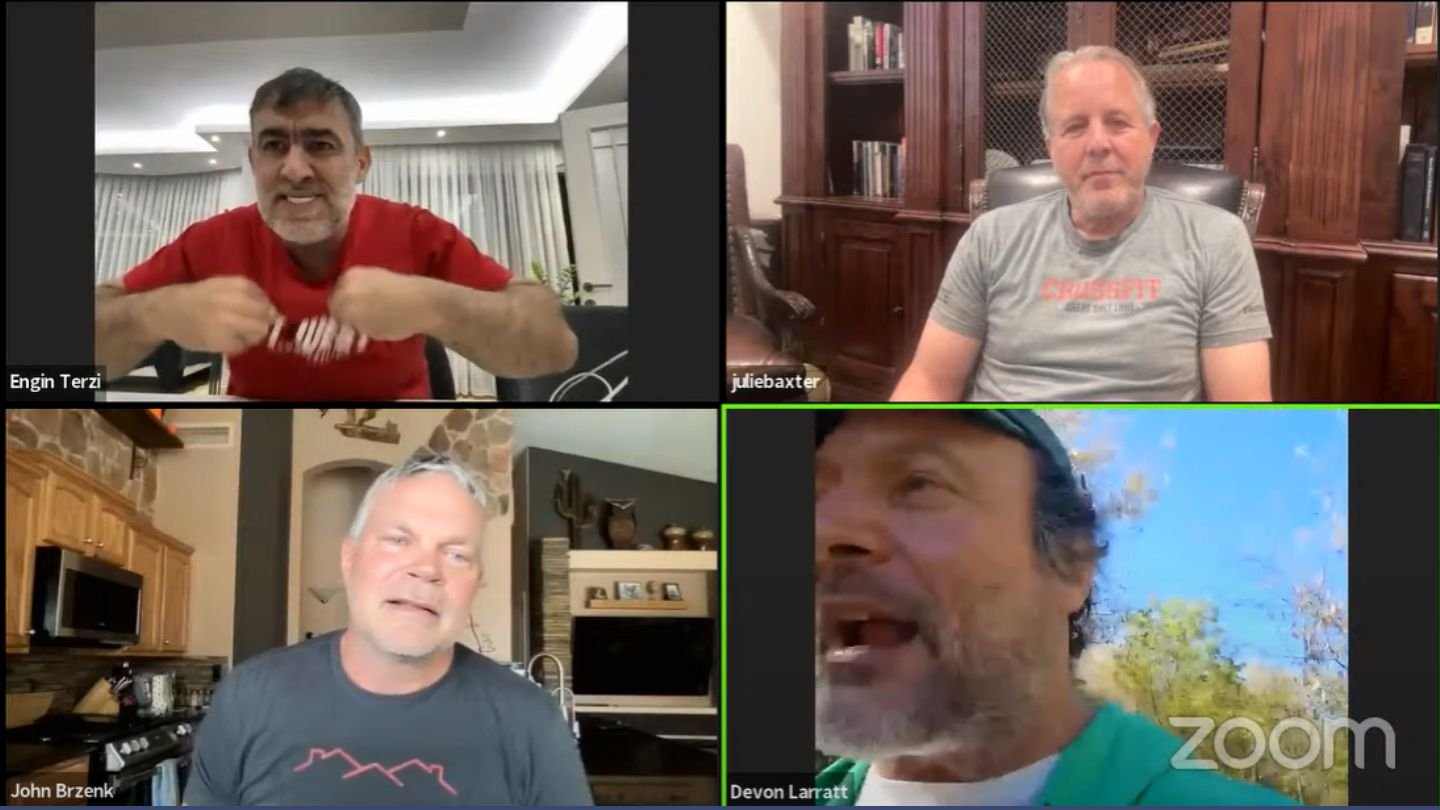It is not new that Devon Larratt is accused of taking advantage of his opponents during setup but the subject has resurfaced recently. It all started during a podcast between Engin Terzi and Travis Bagent, where the latter relaunched the accusations in the run-up to the highly anticipated match between Devon Larratt and Oleg Petrenko at East vs West 15. Travis insisted that the referees should be stricter with Devon during the setup, especially to ensure that the hands are perfectly aligned and that he does not initiate the Kings Move before the starting signal.
The discussions took another turn during another podcast bringing together Engin Terzi, John Brzenk, Robert Baxter and Devon Larratt. While the initial topic was supposed to be the future of arm wrestling, the conversation quickly shifted to Devon's behavior during setups. John Brzenk and Engin Terzi have expressed concerns about the time it takes to set up during Devon matches. John notably accused Devon of intentionally making the grip uncomfortable for his opponents, while he believes that both competitors should feel comfortable before the “GO”.
Devon, for his part, makes no secret of it: he affirms that the setup is an integral part of the match and that it is up to each athlete to find the best position for them. He reminds us that his goal is above all to win. Tired of criticism, he points out that he is constantly under attack, with calls for greater severity from referees against him.
The discussion heated up when Devon challenged Engin to provide him with specific examples where he deserved a foul. Engin then explained that there were times when Devon moved his shoulder after the “Don’t move” signal which, according to the rules, should be punished. Devon countered by saying that as long as the hands remained in the center of the table, this movement was part of the loading before the “GO,” an adjustment to prepare for the start. Engin immediately rejected this argument, clarifying that it was not part of the official rules.
Faced with this opposition, Devon suggested that Engin rewatch all of the East vs. West matches, saying that many athletes were doing the same thing as him. He added that it was unfair to target him specifically, when these practices were commonplace in the sport.
Devon's comments, which Engin considered disrespectful, did indeed tense the atmosphere. Engin emphasized that, as organizer, he had a responsibility to remind people of the rules, especially when several athletes (Ermes Gasparini, Georgi Tsvetkov, Evgeny Prudnik) came to complain about the behavior of the same competitor. As far as he was concerned, the aim was not to target Devon in particular, but to ensure the fairness and integrity of competitions.
Realizing that the situation had gotten out of hand, Engin decided to do another podcast with Devon to clarify things. During this discussion, Ermes Gasparini joined the conversation to express his opinion, believing that the referees might be intimidated by Devon and hesitate to give him the fouls he deserves. Devon acknowledged that he was playing within the boundaries of the rules, but he insisted that he was not breaking the rules and accepted the sanctions when they were imposed on him.
Ultimately, participants agreed that the term "cheat" was not appropriate and discussed the idea of revising the rules to provide more clarity. The goal would be to establish consensus on permitted practices to avoid future controversy.


Leave a Comment